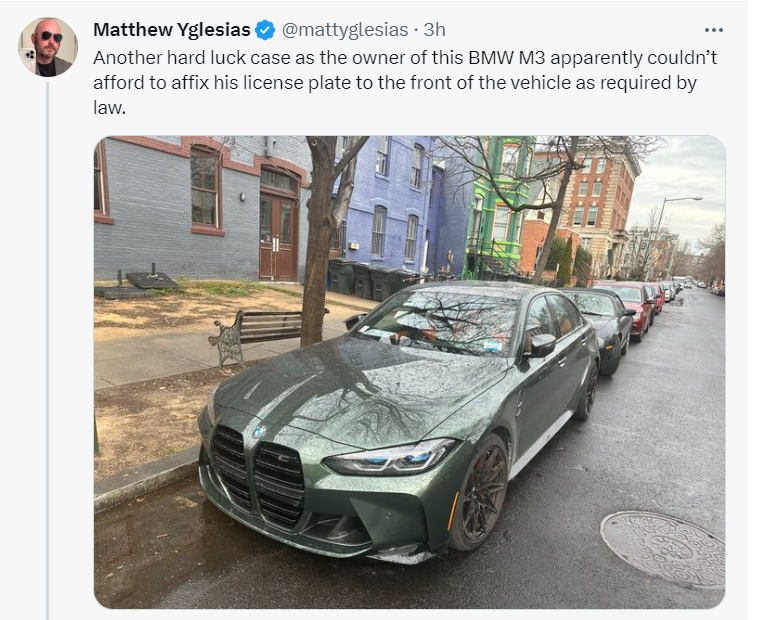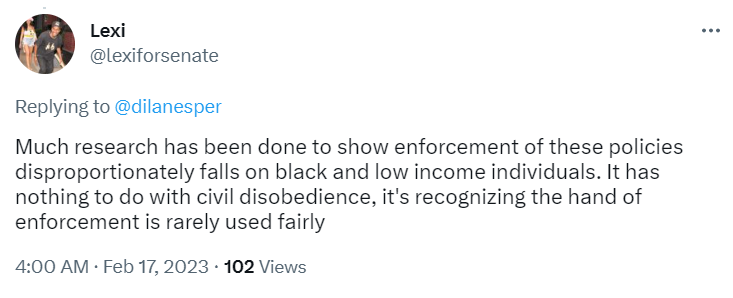But, at the same time, people seem to be completely able to understand why cracking down on turnstile jumping is bad. Matt has a longer piece on why fake license plates are bad and the list of reasons is actually pretty cogent. In addition to lost revenue, there is a real issue with criminals using lax enforcement to make moving stolen cars substantially easier.
Reading the comments, people love to introduce the red herring that front plates are not required by every state. Y'know, there are places with free transit. It does not make jumping turnstiles in New York legal by osmosis. Or there is the question of whether it is snitching or acting like a "Karen".
But my least favorite argument is this one:
First, the real poor do not drive German luxury cars. They ride public transit. Second, if the reason that people are using fake tags is because they can't afford real tags, that is an income problem that I would be happy to address. Waive fees for low income car owners by increasing them for high income car owners? I mean these costs are trivial compared to car insurance, and are on the order of a tank of gas. There will be somebody who is immiserated by these costs but they are in deep trouble already as soon as they need a car repair ($72!!!). In Virginia it is $30 and literally the cost of a tank of gas.
I see the same argument rolled out for things like the gas tax. The very poor pay no gas tax and the people most impacted by it are those who elect to drive large single occupancy vehicles.
Now, not wanting to pay for traffic offenses is different. But there it gets tricky. Automated cameras do not check the race of the driver before snapping a photo. In general, I would presume that they are fairer than direct enforcement and so the actual impact of fake tags undermining the automated system could well be more disparate impact in traffic enforcement.
If we want to really focus on helping out those with few resources then I am all for it. But then support policies intended to help these groups more broadly and not just when it intersects with a policy that mostly helps the well off.



No comments:
Post a Comment